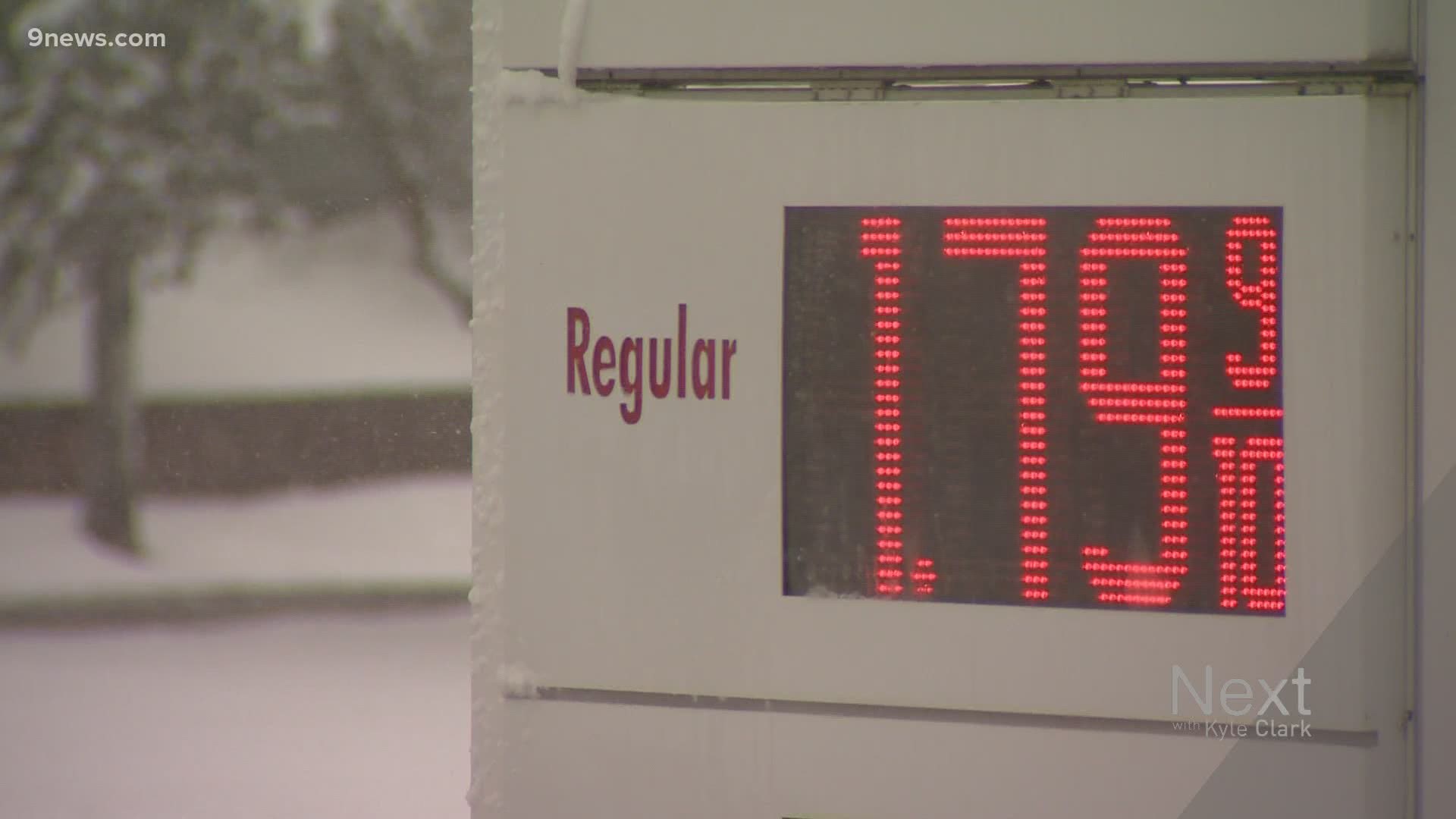DENVER — The good news of not having to drive to work?
Spending less money on gas.
The bad news of not having to drive to work?
Spending less money on gas.
With losses incurred because of COVID-19, the Colorado Department of Transportation (CDOT) estimates that it will be short $50 million just from gas tax revenue over the next three years, with the worst financial year being 2022-23.
"We're looking at nearly $100 million in cuts over the next year and nearly $250 million cuts over the next few years," said CDOT Executive Director Shoshana Lew.
Lew presented the financial report to the CDOT Transportation Commission during an online meeting on Thursday.
"We knew we didn't have funding for the 10-year Capital plan. It's more of a harsh reality that we're having to have this conversation about the near-term years," said Lew.
More urgently, CDOT is needing the state to issue certificates of participation, as outlined in Senate Bill 267 from 2017.
The legislature that year gave CDOT $2 billion over four years. Each of those years, the state would issue certificates of participation to provide CDOT $500 million for four straight years.
Certificates of participation essentially mean the state is selling buildings it owns to get immediate funding, and then they buy the buildings back through a lease-purchase agreement.
"We're working to make sure that we get the best interest rate that we can because any dollar that we spend on interest, we can't use on projects," said State Treasurer Dave Young.
Young said that the state was ready to put out the preliminary offering statement for certificates of participation on March 17, which would have been followed by going to market to sell those certificates of participation one week later.
"At that moment the market was in a standstill," said Young. "No one was buying COPs. In fact, they were selling them. You can take your issuance to market, but if there's nobody there to buy, it's pointless."
The state treasurer must issue the certificates of participation by June 30.
"We want to make sure we're going to market, but getting the best rate possible, so that we're not paying more in interest," said Young.
With that money in limbo, it's unclear if CDOT can move forward with projects that were relying on the funds to pay contractors on projects that have already been put out to bid.
"Unfortunately, in the week since those bids were opened, the world has changed a lot," said Lew.
Five projects, mainly in rural Colorado, were set to start later this year based on that funding.
- US 50 and Purcell Drive Interchange ($42 million)
- Construct a grade-separated interchange in Pueblo County to improve safety and mobility of US 50. Addition of one lane on US 50 westbound lane key for the connection from Pueblo to Pueblo West. Pedestrian and bike accessibility will also be improved.
- Colorado 17 Shoulders and Resurfacing ($32 million)
- Continuation of adding shoulders and resurfacing on CO 17 from 20 miles south of Moffat north for 34 miles.
- State Highway 34 Grand Lake ($11.5 million)
- Guardrail and bridge rail upgrades and overlay for 9 miles.
- State Highway 92 Crawford East ($7.8 million)
- Guardrail and bridge rail upgrades and overlay for 12 miles. State Highway 69A from Westcliffe to Fremont County
- State Highway 69A from Westcliffe to Fremont County ($7.1 million)
- ADA ramps for pedestrian access, guardrail and bridge rail upgrades for almost 23 miles near Westcliffe.
"These five projects, while there may not be a legal contractual obligation at this point, but there is an ethical commitment from the department," said Tony Milo, Executive Director of Colorado Contractors Association.
The US 50 project in Pueblo is supposed to be completed by Rye-based Kirkland Construction.
"We would have up to 100 employees on this project," said co-owner Ronda Neumeister. "We intend on keeping our employees working with the certain hope, well the definite hope, that we would be able to get this job and it would go forward. At this point, there's nothing on the radar of where we would even go."
"I think it's really important to use whatever creativity we have for the moral, ethical and visual of seeing Colorado get back to work, it will help promote the vision of recovery," said CDOT Commissioner Don Stanton.
"I think it's a gut punch. "We're getting gut-punched every day and this is certainly one," said CDOT Commissioner Irv Halter. "We need to steel ourselves to make some pretty tough decisions that are going to hurt people."
Voters have rejected numerous ballot issues on transportation, including in 2018. One of those proposals relied on the state to find money within the budget, the other would have allowed the state to keep TABOR refunds instead of refunding those back to residents.
"We really should have dealt with this problem during a good economy. It was one of the, sort of, failures we had, was that we didn't deal with creating a sustainable revenue when the economy was good and people felt comfortable," said Rep. Matt Gray, D-Broomfield.
Gray is the chair of the House Transportation Committee. As a whole, the legislature has annually failed to come up with a long-term solution for road funding.
"It's a really tough thing to solve right now because this crisis has made the problem worse," said Gray. "Day-to-day medical care seems more important than long-term infrastructure finance."
SUGGESTED VIDEOS | Full Episodes of Next with Kyle Clark

